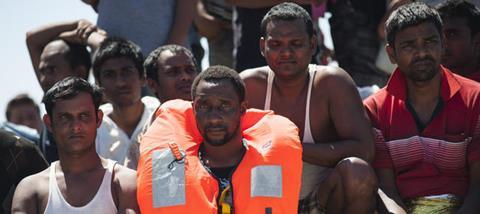
Calling them ‘migrants’ puts a political label on the human tragedy. And the crisis is crying out for far more than political posturing - especially during election season.
In this Mediterranean manslaughter, we are dealing with more than Muslims from Libya imposing themselves on Christians in Italy. Both borders have become exit-entry points for the two continents. People from Syria, Eritrea, Sudan, Ethiopia - and even from Uganda and Ghana - are being poured through lawless Libya in an effort to reach northern and Western Europe.
We are dealing with thousands of people who find themselves in no-choice communities, suffering extortion and hostility. It’s the image of people fleeing a burning building they once called home. And they are coming to Europe for help from all of us.
No one political party who claims to have the solution should be trusted because no party in Europe has a trustworthy record of competence on migration. We should spot the myopic policies of political parties most harmful to these survivors and approach everyone else with a good deal of caution.
Nothing short of an urgent response from the African Union, a robust response to Islamic extremism and orchestrated humanitarian plans from European governments will help these victims of injustice.
The victims of human trafficking don’t have the luxury of debating political arguments on how the problem should be tackled. There are already unhelpful disputes about whether help should be given at the points of departure like Libya, or the destinations in Turkey or Italy. What is needed are urgent both/and responses.
But the crisis also touches on our own personal morality. The whole business evokes a common and Christian empathy for the suffering of these people – including the scores of children who have drowned. But we are also torn between what needs to be done in challenging the issues at source, and the sheer inconvenience of absorbing the problems on our own doorsteps. We are weary about having to care indefinitely yet again.
Its easier to worry about what all this will mean for our domestic politics and Mediterranean time shares, than to enter into the abject, diabolical situations which force a mother to commit her daughter into the hands of an unscrupulous stranger in the hope that she will be better off.
The drama of the boat people is our present demanding reminder that Jesus’ definition of a ‘neighbour’ is a very costly thing.
To receive a free copy of Premier Christianity magazine click here




























